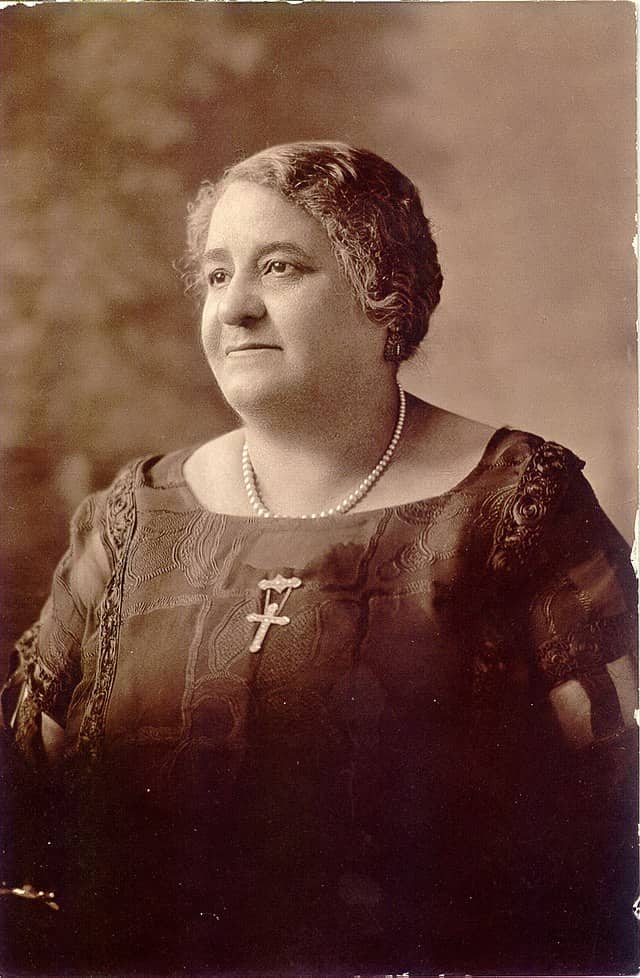Black people in the United States struggle to get funding from banks. The fight to open the banking industry began with Maggie Walker in 1903 when she started the Independent Order of St. Luke. She contributed to the advancement of financial services for African Americans.
Today, while black businesses still struggle for capital, things are gradually improving. Keep reading to find out more.
Become an insider. Subscribe to our newsletter for more top trending stories like this!
Understand banking in America by reading these books from Amazon.
Read More: Black culture: The interesting History of the Afro-Mexicans
Maggie Walker’s Early Years
Maggie Walker was born to enslaved parents on 15 July 1864 in Virginia. They worked and lived in an estate but shortly after moved into a tiny house. The death of her father left her and her mother in poverty.
To make ends meet, Walker’s mum did laundry business, and she helped. This is where she learned about the quality of life between white and black people, and she devoted her life to reducing this gap. She attended St. Lancaster School and then went to Richmond Colored Normal School.
Read More: Are Fijians Black? How Africans Moved to the Fiji Islands
Career
In 1883, she graduated and began teaching at her alma mater. However, she lost her job after she got married because the school rules didn’t allow teachers to get married.
Buy bookkeeping records on Amazon.
Community Organizer
She went on to become a community organizer and provided humanitarian services. While there, Maggie Walker began the St. Luke Herald newspaper. It was published every Saturday and carried the latest news for the Richmond black community. The Right Worthy Grand Council of St. Luke’s published the newspaper.
Maggie Lake knew the Independent Order of St. Luke had to earn credibility. The newspaper was one way of doing that. She used this platform to talk about racial issues. She wrote articles that received responses from publishers like News Leader and Washington Post. The paper did extremely well.
Join our Spotcovery Global Black Community Facebook Group for early access to exclusive content and to share in a lively discussion.
Bank
After that, she opened the St. Luke Penny Savings Bank to become the first African-American woman to run a bank. Walker served as President until 1929. The bank gave African-American people the opportunity to work and access affordable goods.
The Great Depression didn’t lead to the closure of St. Luke Penny Saving. Walker led a merger with two other banks, the Trust Company and the Consolidated Bank. Afterwards, Maggie Lake chaired the board of directors.
Become an insider. Subscribe to our newsletter for more top trending stories like this!
Apart from her interest in advancing the financial services for black people, Maggie advocated for women’s rights. The banker was the vice president of the National Association for the Advancement of Colored People (NAACP).
Read More: Who Started Slavery in Africa? The History and Facts You Probably Didn’t Know
Illness
Unfortunately, Maggie Walker was diagnosed with diabetes shortly after the death of her husband in 1915. Although she went on with her work, by 1928, her health started to decline, and she was confined to a wheelchair. In 1934, Maggie Walker died from diabetes complications.
Legacy
Maggie Walker received numerous honors throughout her life. In 1925, she got an honorary master’s degree from the University of Virginia Union University.
The Junior Achievement U.S inducted the pioneering businesswoman into the Hall of Fame in 2001.
In 1978, they turned her Jackson Ward home into a National Historic Site known as the Maggie L. Walker National Historic Site.
In 2017, they unveiled a Maggie Walker statue on Broad Street, Richmond.
Maggie Walker was a forward-thinking woman. She spotted the financial gap between black and white people and did as much as she could to provide a better environment for African Americans.
Get an accounting calculator on Amazon.
Nearly 80% of consumers visit directories with reviews to find a local business. List your business for free in our exclusive Spotcovery Black-Owned Business Directory.
Spotcovery offers unique and fresh daily content on Black culture, lifestyle, and experiences. We talk about everything black, black people, black-owned and black-owned businesses. We also deliver authentic and relevant content that will inform, inspire, and empower you! The future of black media is critical to today’s black experience! Our primary audience includes African Americans, Africans, Afro-Caribbean, and people of African heritage. Black culture is for the culture!
Become an insider. Subscribe to our newsletter for more top trending stories like this!





